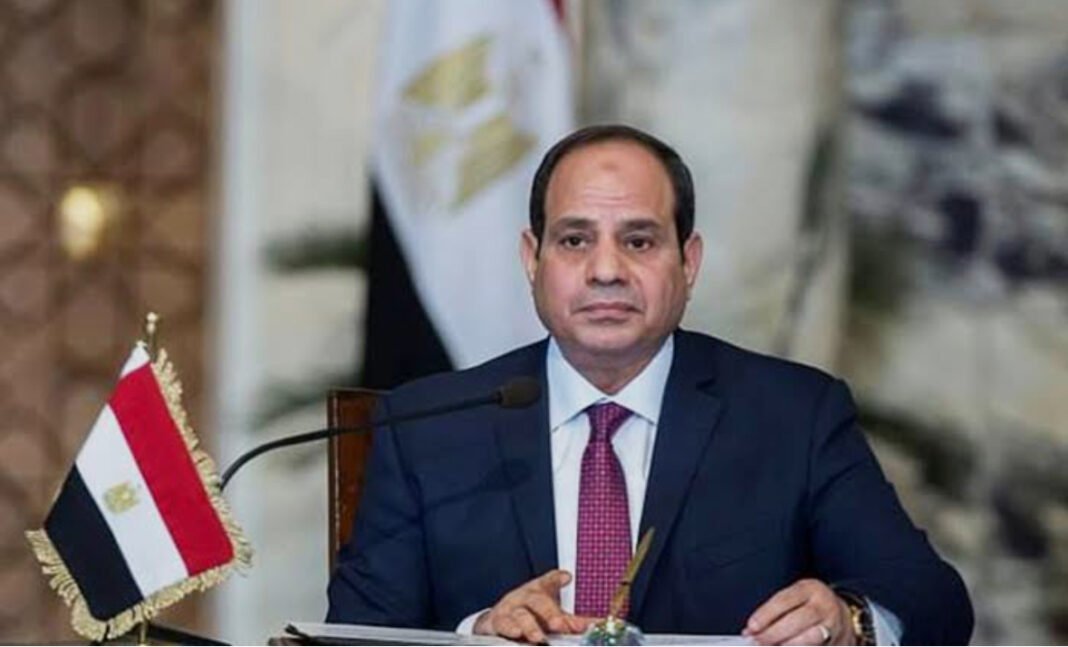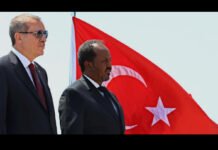By Horn Africa News Staff
Cairo, Egypt — Egyptian President Abdel Fattah El-Sisi has welcomed recent remarks by U.S. President Donald Trump regarding the Grand Ethiopian Renaissance Dam (GERD), hailing them as a strong reaffirmation of Washington’s commitment to global peace and conflict resolution. In a statement released by the Egyptian presidency, Cairo praised Trump’s diplomatic approach, especially his recognition of Egypt’s historic reliance on the Nile River and his call for a fair resolution to the GERD dispute.
The statement underscored Egypt’s appreciation for Trump’s broader foreign policy, particularly his efforts to de-escalate tensions and promote stability in key global hotspots such as Ukraine, Palestine, and regions across Africa. However, it was Trump’s stance on the GERD crisis that drew special praise from Egyptian officials.
The GERD, a massive hydroelectric dam under construction on the Blue Nile in Ethiopia, has been a source of mounting tension in the region. Egypt, a downstream country, has long viewed the dam as a direct threat to its vital water supply. Over 90% of Egypt’s population depends on the Nile River for fresh water, and authorities fear that Ethiopia’s unilateral filling and operation of the dam could significantly reduce Egypt’s share.
President Trump’s recent characterization of the Nile as the “lifeblood of Egypt” was received in Cairo as a powerful diplomatic gesture. Egyptian officials described the comment as a “turning point” that reaffirms international recognition of Egypt’s legitimate water rights and concerns.
“President Trump’s recognition of Egypt’s historical and natural rights to the Nile waters reflects an understanding of the critical importance of water security to national sovereignty,” the statement read. “This is a constructive step toward achieving a comprehensive, just, and lasting solution to one of the region’s most sensitive geopolitical disputes.”
For more than a decade, Egypt has engaged in regional and international negotiations in an attempt to secure a legally binding agreement on the filling and operation of the GERD. These efforts have repeatedly stalled due to what Egypt describes as Ethiopia’s refusal to compromise or cooperate meaningfully with downstream countries.
The Egyptian government emphasized that Trump’s backing of a fair and balanced resolution aligns with Egypt’s long-held position that diplomacy, not unilateral action, should guide the management of transboundary water resources.
“Egypt remains committed to peaceful negotiations and multilateral frameworks that uphold international law and equitable access to shared natural resources,” the statement continued. “We welcome the U.S. administration’s constructive involvement in this matter and call on all parties to return to the negotiating table with renewed goodwill.”
The statement also highlighted Egypt’s broader support for President Trump’s diplomatic philosophy, stating that it promotes “stability, justice, and multilateral engagement” in addressing global challenges. Cairo signaled its willingness to collaborate with Washington and other international partners in any initiative aimed at resolving the GERD crisis through dialogue and mutual respect.
Trump’s remarks arrive at a delicate moment in the GERD saga. Ethiopia has continued to advance construction and partial filling of the dam despite growing international concern and appeals for compromise. Regional tensions have at times sparked fears of a wider conflict, with both Egypt and Sudan insisting that the dam’s operation must not undermine their water security.
As global powers watch the evolving situation, Egypt’s public alignment with Trump’s comments could breathe new life into stalled diplomatic efforts. Analysts suggest that renewed U.S. engagement may offer a much-needed opportunity to mediate a sustainable agreement between Egypt, Ethiopia, and Sudan.
The Egyptian government concluded its statement by reiterating its call for international cooperation in the pursuit of regional peace, warning that inaction could risk deeper instability in the Horn of Africa and beyond.





